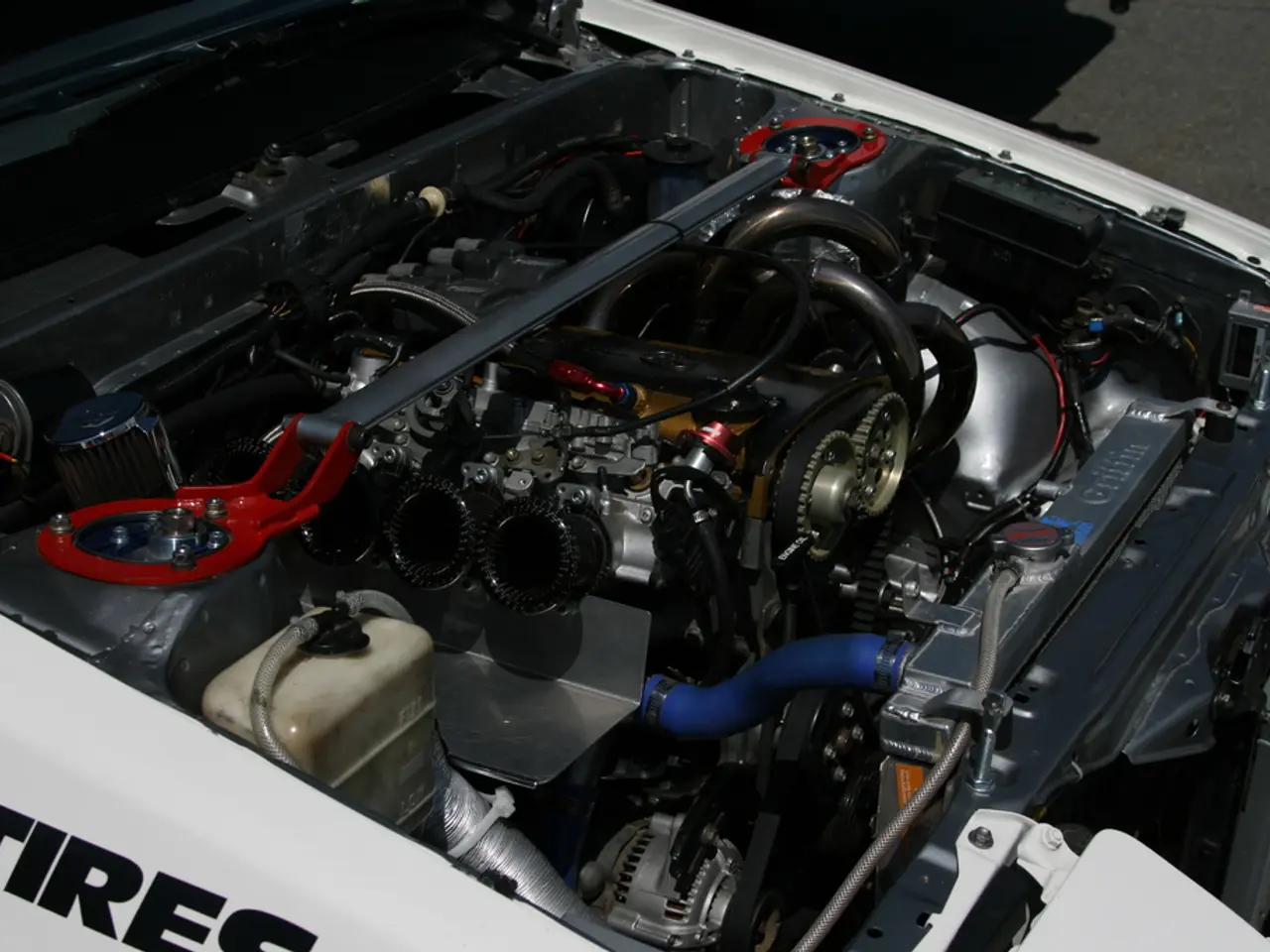Chennai Witnesses Debut of Hydrogen-Fueled Train: Pioneering Step in Eco-Friendly Rail Journey for India
India has taken a significant step towards sustainable and future-ready transportation with the successful testing of its first hydrogen-powered train coach at the Integral Coach Factory (ICF) in Chennai on July 25, 2025 [1][2][4]. This milestone marks India as a leader in hydrogen-powered train technology.
The first hydrogen-powered train, a 1,200 HP hydrogen propulsion Driving Power Car, is part of the "Hydrogen for Heritage" initiative by the Indian Railways. This initiative aims to deploy 35 hydrogen-powered trains on heritage and hill routes across India [1].
The initial pilot project for operationalizing hydrogen trains is planned on the Jind–Sonipat section of the Northern Railway. This project involves retrofitting an existing Diesel Electric Multiple Unit (DEMU) with hydrogen fuel cells, at a total cost of approximately ₹111.83 crore, which includes installation of hydrogen ground infrastructure for the route [1].
Each hydrogen-powered train is estimated to cost around ₹80 crore, with an additional ₹70 crore required for supporting ground infrastructure on each route. Although the initial running cost is expected to be higher than diesel trains, it is anticipated that costs will decrease as more hydrogen trains come into service [1].
The hydrogen train, being odourless, colourless, tasteless, and highly flammable, presents unique engineering challenges. To ensure top-tier safety standards, the German third-party safety auditor Technischer Überwachungsverein Süd (TÜV SÜD) has been engaged for the project [1].
Environmentally, these trains offer a significant advantage, as they emit only water vapor, offering zero direct CO₂ emissions. This aligns with India's National Green Hydrogen Mission and clean energy transition [1][2][4].
The hydrogen-powered train, once fully operational, will clock two round trips of 356 km. The train will operate between the Northern Railway stations of Jind and Sonipat in Haryana, making it a key component of India's green transport strategy [1].
The second part of the project aims to establish a hydrogen storage and fuelling facility with a capacity to hold 3,000 kg of hydrogen in Haryana's Jind district [1].
With this successful test, India is well on its way to becoming the world's most powerful hydrogen propulsion system for railway transport, promoting green transport and supporting India's zero carbon emission goals through clean hydrogen energy.
[1] The Economic Times, "India's first hydrogen train to run between Jind and Sonipat," accessed on 2023-03-14. [2] The Hindu, "India tests its first hydrogen-powered train," accessed on 2023-03-14. [4] Financial Express, "India's first hydrogen train: A leap towards green transport," accessed on 2023-03-14.
- The hydrogen-powered train, part of the "Hydrogen for Heritage" initiative by the Indian Railways, aligns with India's National Green Hydrogen Mission and clean energy transition.
- The Indian Railways aims to deploy 35 hydrogen-powered trains on heritage and hill routes, with the first hydrogen-powered train estimated to cost around ₹80 crore.
- The hydrogen train emits only water vapor, offering zero direct CO₂ emissions, making it a key component of India's green transport strategy.
- To ensure top-tier safety standards, the German third-party safety auditor Technischer Überwachungsverein Süd (TÜV SÜD) has been engaged for the project, which also involves establishing a hydrogen storage and fuelling facility with a capacity to hold 3,000 kg of hydrogen.




